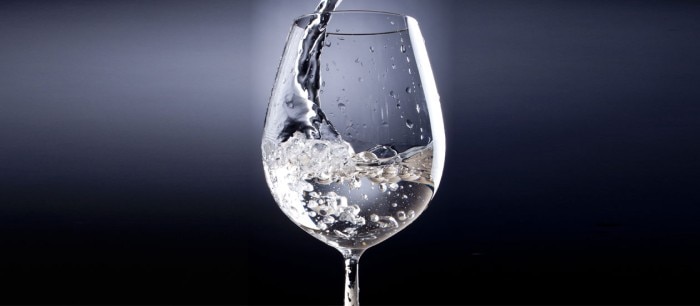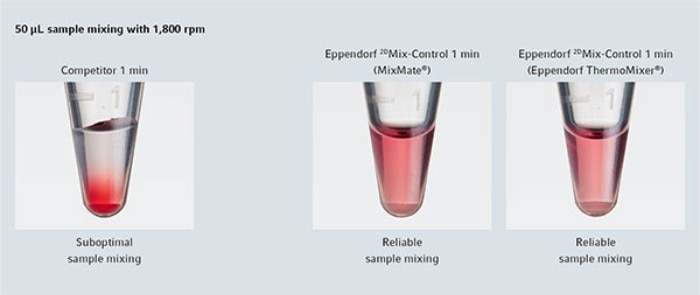菜单
CN | CNY
CN | CNY

Facing Irregular Mixing Results in Your Microtube?
Jan Bebermeier 实验室学院
- 混匀仪与摇床
- 文章
Mixing 50, 100, or even 1,000 mL is a simple process. Due to the available volume you can easily create a vortex within your vessel, resulting in very well mixed samples. Low volume mixing is different. Special processes are needed to avoid capillary effects, meaning stuck liquid samples.
Reliable sample mixing is far beyond simple mixing, especially when talking about microliter volumes. Microtubes or microplates of 200 µL or 500 µL volume have a very small diameter of a few millimeters. A droplet of e.g. 50 µL tends to stick in one droplet which is moved around by the mixing process. Due to this droplet movement, there is no real mixing within the droplet. As a result, your sample is not mixed within itself but steadily shifted around within the vessel.
显示更少

This mixing can be shown by a topview time-lapse photography of controlled mixing. The pictures show the same well of a skirted Eppendorf twin.tec® PCR Plate 96, filled with 75 μL of water with dye Ponceau 4R. The first picture on the left shows a sample without mixing. Picture two-to-five show a controlled mixing at 1,650 rpm mixing speed (4 time-lapse photos). The droplet clearly changes its shape, resulting in internal mixing processes.
The 2D Mix-Control technology enables liquid mixing in a very controlled, circular movement. Besides the efficient mixing, the lack of chaotic splashing enables mixing without lid wetting or cross-contamination.
The 2D Mix-Control technology enables liquid mixing in a very controlled, circular movement. Besides the efficient mixing, the lack of chaotic splashing enables mixing without lid wetting or cross-contamination.
显示更少
Mixing Comparison
显示更少

Mixing a liquid sounds easy. But this set of pictures show the gap between suboptimal mixing and reliable sample mixing. Especially when cost-intensive downstream applications will follow the mixing process, a 100% and reliable mixing of your samples is mandatory.
显示更少

